Recap of ‘Mongolian-Made’ Capitalism Workshop
By Lauren Bonilla, on 9 December 2016
What forms of capitalism are emerging in Mongolia? How capitalist is Mongolian capitalism? These are questions that an interdisciplinary group of scholars associated with the Emerging Subjects project at University College London and the National University of Mongolia (NUM) explored at the workshop, ‘Mongolian-Made’ Capitalism, held at the Mongolia-Japan Center in Ulaanbaatar on November 16th. The goal of the workshop was not to produce a definitive answer about what capitalism ‘is’ in Mongolia. Rather, the workshop explored the ways in which capitalist economic activities have become part of many Mongolian peoples’ everyday lives, and how this in turn shapes capitalism more broadly.
While we called the event a ‘workshop’ during planning, in actuality it felt more like a conference given the large number of people in attendance and the quality of research material presented. Expertly organized by Rebekah Plueckhahn and Bumochir Dulam, the workshop brought together junior and senior researchers from disciplinary backgrounds including anthropology, economics, geography, and sociology. As Rebecca Empson explained in the introduction, the workshop served to feature aspects of research conducted within the larger Emerging Subjects project, especially collaborations between researchers at UCL and the NUM. Because the workshop occurred a little past the halfway point of the Emerging Subjects project (2014-2018), and followed many months of fieldwork in Mongolia, it provided a chance for us to present initial findings and get feedback from others before the next phase of analysis, writing, and publication.
Over 100 people attended the workshop, including a large number of undergraduate and graduate students from the Department of Archaeology and Anthropology at NUM, as well as faculty from other university departments, researchers, journalists, and politicians. Workshop panels were chaired by a wonderful group of university professors and public leaders: S. Munkhbat (NUM, Political Studies Department), B.Tuvshintugs (NUM, Economics Department), and Ts. Delgermaa (Ministry of Environment and Green Development, Director of Onon River Authority).
In addition, interlocutors involved in the research of Emerging Subjects’ project members – such as herders, mining investors, entrepreneurs, and environmental activists – came from Ulaanbaatar and the countryside to attend the workshop. The diversity of backgrounds and the availability of simultaneous English and Mongolian translation during presentations contributed to lively engagement among those in attendance, especially during tea and meal breaks.
Making Capitalism
Rebekah and Bumochir kicked-off the workshop by calling attention to the varied meanings of capitalism, both as a theoretical concept and as an empirical experience. Rebekah drew theoretical insight from scholarship on the heterogeneity of capitalist practices, highlighting how capitalism is never a complete project, but always something that is being constructed through the interaction of local and global processes. She explained that the workshop presentations demonstrate the concrete, grounded ways in which capitalism is constantly made and remade through social practice and engagement with the material world. Attending to the specifics of capitalism in this manner is quite different from approaches that tend to treat capitalism as an abstract background context from which economic activities and interventions take place.
Bumochir’s presentation extended these points by critiquing the notion that capitalism is a singular as well as recent economic form. By tracing the long durée of capitalism in Mongolia, he explored how practices associated with capitalism, such as private property ownership, wealth accumulation through debt and usury, and market integration have deep historical roots in the country, particularly during the period of independence in the early 20th century.
From this overview we also learned that Mongolians have long been co-creators, not just recipients, of capitalism. I built on this idea in my discussion of the active role played by Mongolian individuals in developing the extractive industry as a pillar of the market economy following Mongolia’s democratic transition. I. Byambabaatar further elaborated this theme by illuminating the diverse non-capitalist economies that proliferated in Mongolia following the mainstreaming of national neoliberal economic politics in the 1990s. He detailed how activities he termed ‘survival assemblages’, such as trading animals skins and scrap metal, or mining for gold, continually flourish in the midst of capitalism, perhaps enabling its very existence.
A Capitalist Continuum?
For some Mongolians, the fact that the economy is a mix of economic forms with varying degrees of market, state, and individual influence seems to present some ideological and practical challenges. G. Munkherdene introduced us to the rise of pro-capitalist intellectuals in Mongolia who seek to both conceptualize and create ‘genuine’ capitalism as opposed to the ‘wild’ or ‘primitive’ (zerleg) capitalism that is often said to characterize the country’s volatile economy. Through the publication of western books about liberal economic theory, and the high level of interest among groups of young people to read and discuss these books, he argued that there is the sense that Mongolians could, and should, model a ‘genuine’ capitalism that exists elsewhere (though namely in America).
This view of the Mongolian economy as being on a linear path stretching upwards towards an economic ideal seems to be prevalent not only among these intellectuals, but also among Mongolians more generally. For instance, following the talk I gave based on research with S. Tuya about pre-election gifting strategies among political candidates, a number of attendees variously asked whether the giving of gifts like noodles or cash before an election is a corrupt symptom of a kind of ‘embryonic’ experience of democracy and capitalism. One person questioned whether these practices will persist as Mongolia becomes “more developed” and “less like America 50 years ago”.
The Generative Nature of Capitalism
While tracing economic trajectories and comparing economic forms in Mongolia to elsewhere has value analytically and in terms of policy-making, many of the presenters at the workshop challenged an evolutionary approach to the economy that presumes the existence of ‘higher’ and ‘lower’ stages of development. Instead, there was an interest in capturing and understanding the generative quality of capitalism to bring about new social, economic, biophysical, and political worlds (an orientation common in current scholarship in economic anthropology).
Bayartsetseg and Rebekah Plueckhahn’s collaborative presentation illuminated the capitalist landscapes that are coming into being in the ever-changing ger districts of Ulaanbaatar. They showed how the strategies people employ to obtain land possession rights and access to infrastructure– such as constructing wood fences or occupying land through the tactical placement of one’s home or business – is transforming the material, legal, and commercial dimensions of land around the city. According to them, everyday strategies are not simply responses to capitalism, but means of creating landscapes that are productive of new forms of economic activity and ways of living.
Also highlighting the strategies employed to generate economic activity was C. Narantuya and Rebecca Empson’s interdisciplinary examination of the popularity of business groups in Mongolia. Given the current climate of economic crisis, where the private sector is struggling to access cash and repay mounting debts with little support from the government, they discussed how informal groups formed between small and medium enterprises across diverse sectors like mining, catering, and construction create potentials for sustaining business through the trading of resources like tenders, contracts, contacts, and materials. This, in turn, shapes the structure of business in Mongolia, whereby group alliances can be more a matter of ensuring survival than profit accumulation per se.
Capitalisms’ Risks and Crises
While capitalism can present new possibilities, the workshop also highlighted the risks and crises that are inherent in capitalism as a restless and often ruthless form of economy. For Mongolia, the nature of risk and crisis seems to be growing as a result of Mongolia’s recent embrace of foreign debt. This was the topic of H. Batsuuri’s talk, which analyzed Mongolia’s high levels of public and private debt. He argued that debt accumulation in Mongolia, particularly by private enterprises, has become dangerous because debts are dominated in foreign currencies rather than the depreciating tugrik. He suggested that a looming debt repayment crisis may be far worse than what is portrayed by the government and the media, with few long-term solutions in sight.
Increasing financialization has thrust Mongolia into global circuits of debt and accumulation. It has also changed the scalar orientation of people’s lives. D. Byambajav demonstrated this in his talk about herders living in the vicinity of the Oyu Tolgoi mega-mine in the Gobi. He discussed how herders have lodged complaints about mining-induced environmental impacts with the IFC, which has financed the project operated by Rio Tinto. While large-scale mine developments have contributed to experiences of livelihood and resource dispossession in the Gobi, he shows that it has also ushered in new opportunities and challenges to address these experiences at transnational scales.
Hedwig Waters’ talk revealed in ethnographic depth what it feels like to live the contradictions of capitalism on Mongolia’s geographic and economic edge. Documenting her recent fieldwork in Khalkh Gol along eastern Mongolia’s Chinese border, she shed light on the growing discontent among rural people as they negotiate the surge of ‘outsiders’ from Ulaanbaatar, China, and elsewhere seeking to turn a profit from their land through export agriculture, oil development, and illegal border trade. Hedwig illuminated how residents of Khalkh Gol are questioning the current political and economic status quo using language that bears striking resemblance to the grassroots populist protesters who supported Donald Trump in the US election because of his purported commitment to protectionism and promise to bring about something new.
Other Possibilities
The topic of what economic possibilities exist for Mongolia (and elsewhere) featured at the end of the conference. We were honored to have former parliament member and Minister of Environment and Green Development, S. Oyun, wrap up the workshop with a discussion of the need to move beyond economic activities that privilege growth and profit at the expense of human and environmental well-being. Drawing on the new climate economy concept, Oyun made the argument that Mongolia has the potential to move away from a market- and export-oriented economic structure and lead the development of other industries, like those that harness intangible and intellectual assets.
Yet, as many speakers and participants noted, one of the challenges that seems to persist for Mongolia is the failure of legal and political systems to uphold and put into practice progressive measures that would foster diverse and more viable livelihoods, environments, and economies.
What’s Next?
Following the workshop, a few media outlets in Mongolia covered the workshop. The UB Post wrote a story in their print version, Büro 24/7 interviewed Bumochir, and TV9 featured an interview with H. Batsuuri for their Daily News Program. In the coming months, presenters will transform their talks into articles that we plan to publish in a special issue of an academic journal. We also anticipate that the collaborations that have begun between scholars at UCL and NUM through the Emerging Subjects project will be just the beginning of long-term research partnerships.
For more information about the workshop, feel free to contact the organizers, Bumochir Dulam (b.dulam@ucl.ac.uk) and Rebekah Plueckhahn (r.plueckhahn@ucl.ac.uk), or download the Workshop Program.
Many people contributed their time and effort to make the workshop a success. Special thanks goes to the National University of Mongolia’s Department of Anthropology and Archaeology. In particular, we extend sincere appreciation to: Ts. Tsetsegjargal, the chair of the department; members of departmental staff, D. Dolgorsuren, M. Oyundelger, M. Erdene, and Sh. Uranchimeg; and students, B. Erdenezaya and B. Doljinsuren. G. Munkherdene also provided invaluable last minute assistance. Finally, we are grateful to the National University of Mongolia, the Japan and Mongolia Culture Center, and the Puma Restaurant.
All photos © B. Doljinsuren.
26 Responses to “Recap of ‘Mongolian-Made’ Capitalism Workshop”
-
2
Rebecca Empson wrote on 14 December 2016:

The title of the confrenece: ‘Монголчуудын бүтээсэн капитализм’ (Mongolian-made capitalism) pointed to the idea that capitalism is never is a singular entity, but always something made and enacted differently through the diversity around it. This highlights a point made by Bumochir Dulam toward the end of the day that ‘capitalism’, as a Mongolian term has long had a history of being a ‘dirty’ word (both socialist and current), often covered over in present-day speech by the term ‘democracy’. In some ways, the day was an attempt to break this concept open and look at its manifestation in different activities in Mongolia today.
-
3
Bumochir wrote on 17 December 2016:
Since 1990, Mongolians have been predominantly using the term ardchilsan (democratic) to define Mongolia. While the term capitalist (or капиталист) rarely used to describe Mongolia. This is mainly because, as Rebecca Empson mentions in the previous comment, it has had a history of being a dirty word. Obviously Soviet communism made pivotal impact to make practice of capitalism undesirable. This approach to capitalism did not end in 1990. Former prime minister D. Byambasuren, and also other political leaders in M. Rossabi’s book, declare that Mongolia did not intend to make Mongolia capitalist in the 1990s. Instead, the 1992 constitution of Mongolia declared to build not a capitalist society but a “humane, democratic and civil society”. In my interview D. Byambasuren explains that “humane, democratic and civil society” is neither communist nor capitalist society, but something in between the two. But this does not mean that Mongolia is currently not capitalist. Mongolia is in fact capitalist in many ways, and Mongolia’s capitalism is lumped with democracy.
-
4
Bill Bikales wrote on 3 January 2017:
Thanks for this wonderful account of the workshop. My understanding is that the word “capitalism” was used once or twice before Marx, so not actually invented by him, but that the more widespread use of the term was entirely the result of Marx and Marxist economists and historians. It is not surprising that, as Byambasuren said, the 1990 revolution did not explicitly aim at creating ‘capitalism’ in Mongolia. “Free market economy” would be a much more widely used phrase, even if also vague and often misunderstood. By the way, are the presentations from the workshop available on your website? I would very much like to go through some of them. Thanks!
-
6
rode wrote on 25 February 2023:
Kids ride-on cars are a fun and engaging way for children to get some physical activity. They can provide a great opportunity for kids to exercise, develop their motor skills, and improve their overall health and wellbeing.
One of the key ways that ride-on cars can help with physical activity is by encouraging children to get moving. Many kids today spend a lot of time sitting in front of screens, whether it’s watching TV, playing video games, or using a computer or tablet. Ride-on cars can provide a welcome break from screen time and get kids up and active.
Ride-on cars can be a great way for children to burn off some energy and get some exercise. Riding around in a car can help children develop their gross motor skills, such as balance, coordination, and strength. These skills are important for children’s overall physical development, and they can also help with activities such as sports and other physical activities.
In addition to promoting physical activity, ride-on cars can also be a fun way for children to socialize and interact with others. Children can play together and have races or other competitions, which can help them develop their social skills and build friendships.
Another benefit of ride-on cars is that they can help children develop their cognitive skills. As children navigate their car around obstacles and turns, they are developing their spatial awareness and problem-solving skills. This can be especially beneficial for younger children who are still developing their cognitive abilities.
There are many different types of ride-on cars available for children, ranging from simple push cars to more complex battery-powered cars. Push cars can be a great option for younger children who may not be ready for a battery-powered car. These types of cars can help children develop their coordination and strength, and they can be a lot of fun to ride around in.
Battery-powered cars, on the other hand, can be a great option for older children who want more control over their vehicle. These cars can be driven using a foot pedal or remote control, which can provide children with a sense of independence and control. Battery-powered cars can also be a great way for children to practice their decision-making skills, as they learn to navigate their car around obstacles and make decisions about where to go and how fast to go.
In conclusion, kids ride-on cars can be a great way for children to get some physical activity and improve their overall health and wellbeing. They can help children develop their gross motor skills, social skills, cognitive skills, and independence. Whether you choose a simple push car or a more complex battery-powered car, ride-on cars can provide children with a fun and engaging way to get moving and stay active.
-
7
jack wrote on 26 February 2023:
If you are looking for a dominatrix in New York City, there are various ways to find a professional who can provide the BDSM experience you desire.
One of the most popular ways to find a dominatrix in NYC is to search online. Many professional dominatrices have their websites where they showcase their services, experience, and pricing. These websites often include photos and descriptions of the dominatrix’s BDSM activities, so you can get an idea of what to expect before booking a session. Some popular websites where you can find dominatrices in NYC include Slixa, Eros, and BDSM.com.
Another option to find a dominatrix in NYC is to attend BDSM events and parties. These events provide a great opportunity to network with other BDSM enthusiasts, including dominatrices. Some popular BDSM events in NYC include the NYC Fetish Tribe, the Black Thorn, and the New York Bondage Club. Keep in mind that not all dominatrices attend public events, and those who do may not be available for private sessions.
If you prefer a more discreet way to find a dominatrix in NYC, you can try reaching out to BDSM agencies. These agencies connect clients with professional dominatrices, ensuring that both parties are safe and satisfied. Some popular BDSM agencies in NYC include Pandora’s Box and NY Dominatrix.
Lastly, you can ask for referrals from friends or acquaintances who are into BDSM. It’s essential to ensure that the dominatrix you choose is professional, experienced, and reputable. Do your research and read reviews from other clients before booking a session.
When looking for a dominatrix new york city, it’s crucial to ensure that the professional you choose aligns with your desires and needs. Make sure you communicate your boundaries and preferences beforehand to ensure that your session is safe and enjoyable. With the right research and communication, you can find the best dominatrix in NYC to fulfill your BDSM fantasies.
-
8
baccaratsite wrote on 5 March 2023:
I’ve been looking for photos and articles on this topic over the past few days due to a school assignment, baccaratsite and I’m really happy to find a post with the material I was looking for! I bookmark and will come often! Thanks 😀
-
9
Alina Haris wrote on 10 March 2023:
Your blogs are really good and informative, thanks for sharing.
Zaitoon City Lahore -
10
vnscollection wrote on 10 March 2023:
I read your blogs really useful keep sharing such good content.
Shalwar Kameez Collection for Men -
11
k4security wrote on 10 March 2023:
Great blog love to read keep sharing more.
Security Services in Ealing -
12
jack wrote on 8 April 2023:
A prenuptial agreement, commonly referred to as a prenup, is a legal document that outlines how a couple’s assets and debts will be divided in the event of a divorce or separation. While many people believe that prenups are only for the wealthy or those with complex financial situations, they can actually be beneficial for anyone who is planning to get married.
Here are some of the reasons why a prenuptial agreement is important:
Protecting your assets
One of the primary reasons to have a prenup is to protect your assets. This can include anything from a family heirloom to a business you started before getting married. Without a prenup, these assets could be subject to division in a divorce, potentially leaving you with much less than you expected.Clarifying financial expectations
A prenup can also help clarify each spouse’s financial expectations. This can include things like how much each person will contribute to household expenses, how joint accounts will be managed, and how debts will be paid off. By discussing these issues and putting them in writing, couples can avoid misunderstandings and disagreements down the road.Avoiding lengthy and costly legal battles
In the event of a divorce, having a prenup can help streamline the process and avoid lengthy and costly legal battles. By already having an agreement in place, the division of assets can be resolved much more quickly and with less stress and uncertainty.Protecting inheritance rights
If you have children from a previous relationship, a prenup can help ensure that they will inherit your assets in the event of your death, rather than having them be divided among your current spouse and any stepchildren. This can provide peace of mind and help prevent family conflicts down the road.Protecting against debt
If one spouse has significant debt, a prenup can help protect the other spouse from being responsible for paying it off in the event of a divorce. Without a prenup, both spouses may be on the hook for each other’s debts.Encouraging open communication
Finally, creating a prenup lawyer can encourage open communication between partners. By discussing finances and other important issues before getting married, couples can build a stronger foundation for their relationship and ensure that they are on the same page about important issues.In conclusion, a prenuptial agreement can be an important tool for anyone planning to get married. By protecting your assets, clarifying financial expectations, avoiding legal battles, protecting inheritance rights, protecting against debt, and encouraging open communication, a prenup can help ensure a smoother and less stressful path to a successful marriage.
-
13
safetotosite.pro wrote on 22 April 2023:
I constantly read the smaller articles as well as clarify their motives, 먹튀검증 and that also happens with this article!
-
14
casinositenet.com wrote on 22 April 2023:
This was very useful for us to enrich our knowledge and hopefully that you keep it continuing day to day for sharing an informative article.
카지노사이트넷 -
15
casinositekim.com wrote on 22 April 2023:
Thank you for sharing this perfect article!
카지노사이트킴 I want to recommend you one platform, which will save your time and write essays for you. -
16
okbet wrote on 25 April 2023:
Your blog has piqued a lot of real interest. I can see why since you have done such a good job of making it interesting. I appreciate your efforts very much.
Singapore Smash -
17
Gamble wrote on 27 April 2023:
The ‘Mongolian-Made’ Capitalism Workshop was held to discuss the challenges and opportunities of building a successful business in Mongolia. I suggest you check Spree Sports and learn more interesting things about the online game. The event featured various panel discussions with entrepreneurs, investors, and government officials. Topics included the importance of innovation, the role of government in promoting business growth, and strategies for expanding internationally.
-
18
สมัคร igoal wrote on 9 May 2023:
You have done a great job on this article. It’s very readable and highly intelligent.
สมัคร igoal - 19
-
20
Gaspoll88 wrote on 18 June 2023:
Gaspoll88 is aSlot Gacor Hari Ini game site that provides wins in every game and the best service among other online slot provider sites.
-
21
Bigo88 wrote on 18 June 2023:
Register Now Your User ID on the site and Play the Most Popular and Trusted Slot Online Games Which have been provided on the Bigoo88 site, where you have to register a user ID to be able to play your favorite game.
-
22
Madu88 wrote on 18 June 2023:
Game Slot Merupakan situs slot gacor mudah menang dan maxwin hingga jackpot, pilihan resmi dan terpercaya para bettor Indonesia 2023 online yang menjadi salah satu jenis permainan Judi Online Slot yang begitu seru dan terbilang banyak dimainkan oleh setiap slotter di Indonesia.
-
23
Kudabet wrote on 18 June 2023:
The online g4mbling site is the most popular Gacor Slot Game on the site Agen Slot Terpercaya Di Indonesia and guaranteed to be maxwin, as well as lots of scatters that you can get while playing play slot games on the KUDABET site.
-
24
Dewataspin wrote on 18 June 2023:
Agen Slot Terpercaya Dewataspin Merupakan Agen Slot Yang Bisa Anda mainkan dimana pun dan kapan pun Anda ingin bermain, langsung buka situs resmi Dewataspin dan langsung memainkan permainan apa saja yang ingin Anda mainkan, Anda bisa langsung membuktikannya sendiri hanya dengan memainkan satu user ID saja di situs gacor Dewataspin sekarang. Kunjungi situs resmi Kami Disini Link Slot Gacor.
-
25
สล็อตออนไลน์ คลิปโต wrote on 30 June 2023:
Great work guys. This was very helpful and informative สล็อตออนไลน์ คลิปโต I am thoroughly impressed.
-
26
ฝากจอดรถยนต์อุบล wrote on 30 June 2023:
It was really informative. ฝากจอดรถยนต์อุบล Your website is very helpful. Thank you for sharing!
 Close
Close


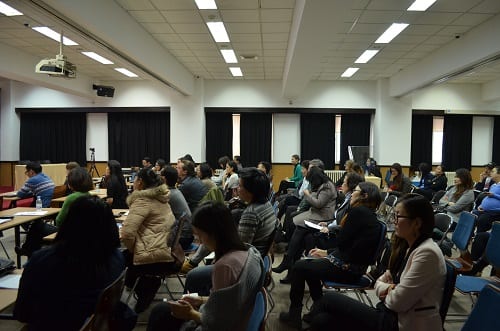
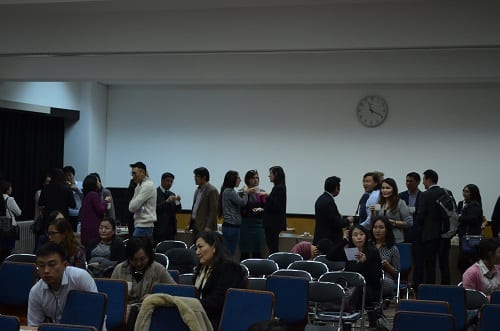

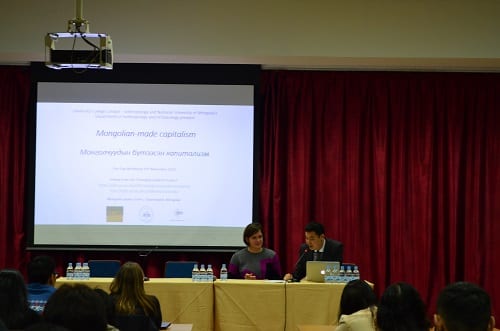
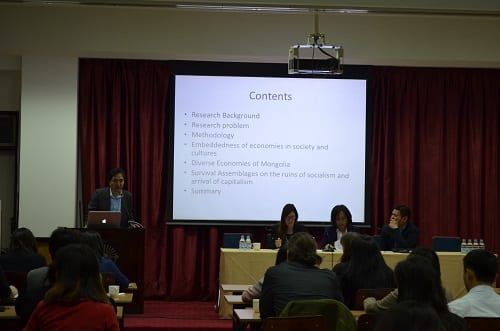
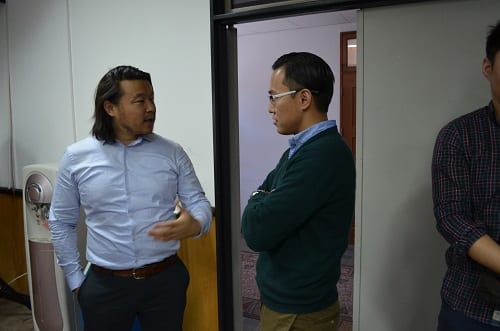
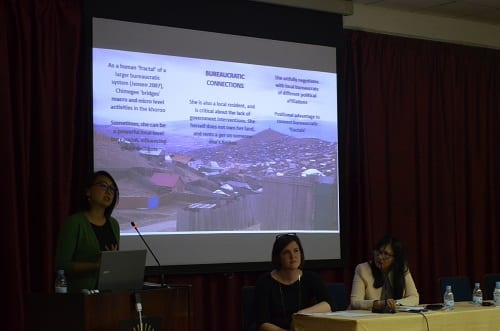
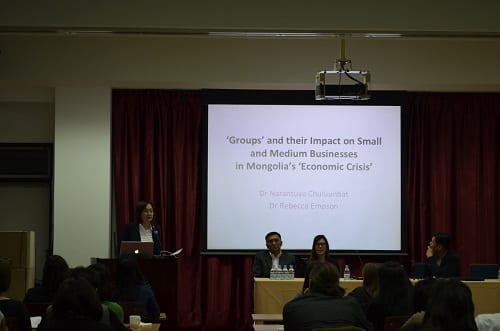
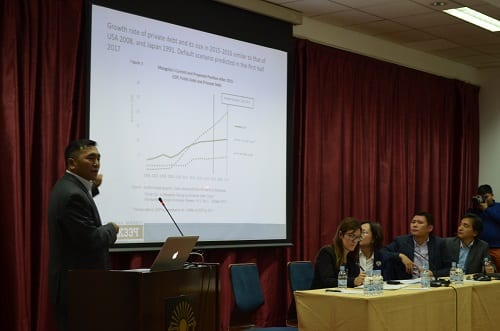
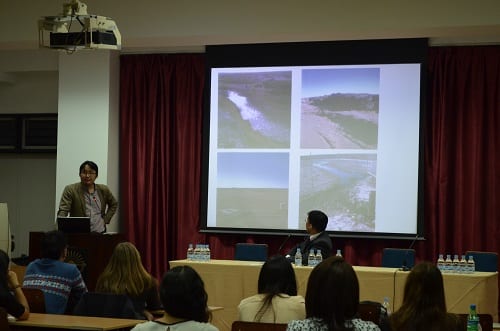

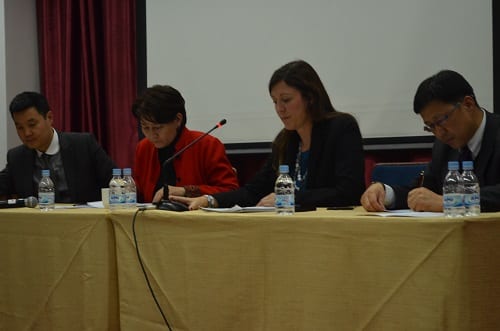
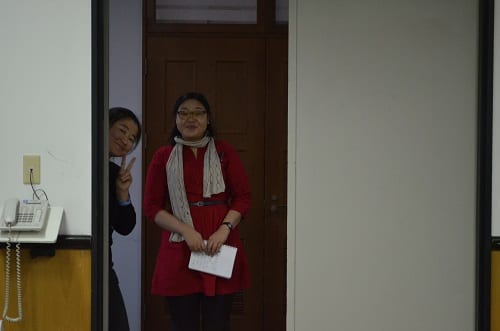
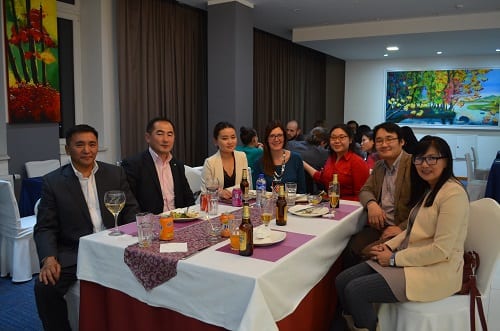
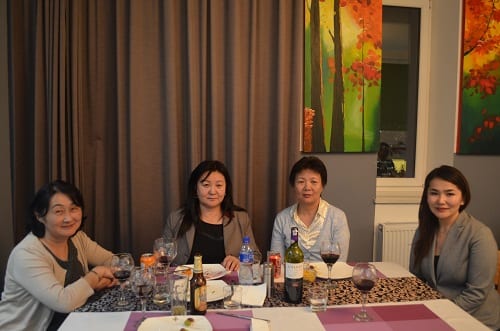

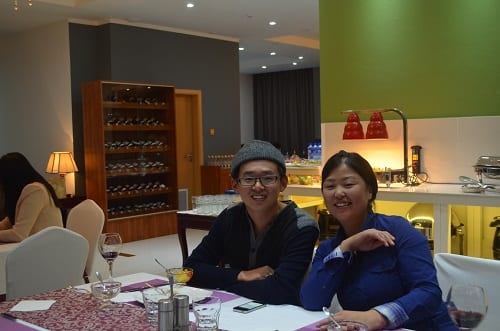
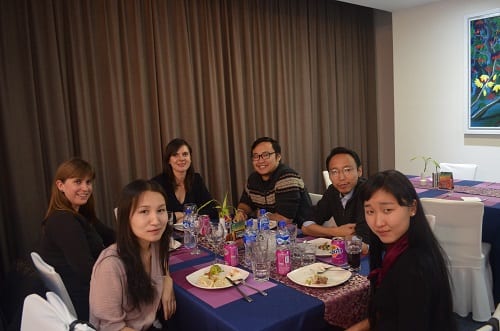


My recap discusses only a portion of the many things discussed at the workshop. I very much welcome other presenters and audience members to write in the comment section about the topics, themes, and research findings that they found interesting.